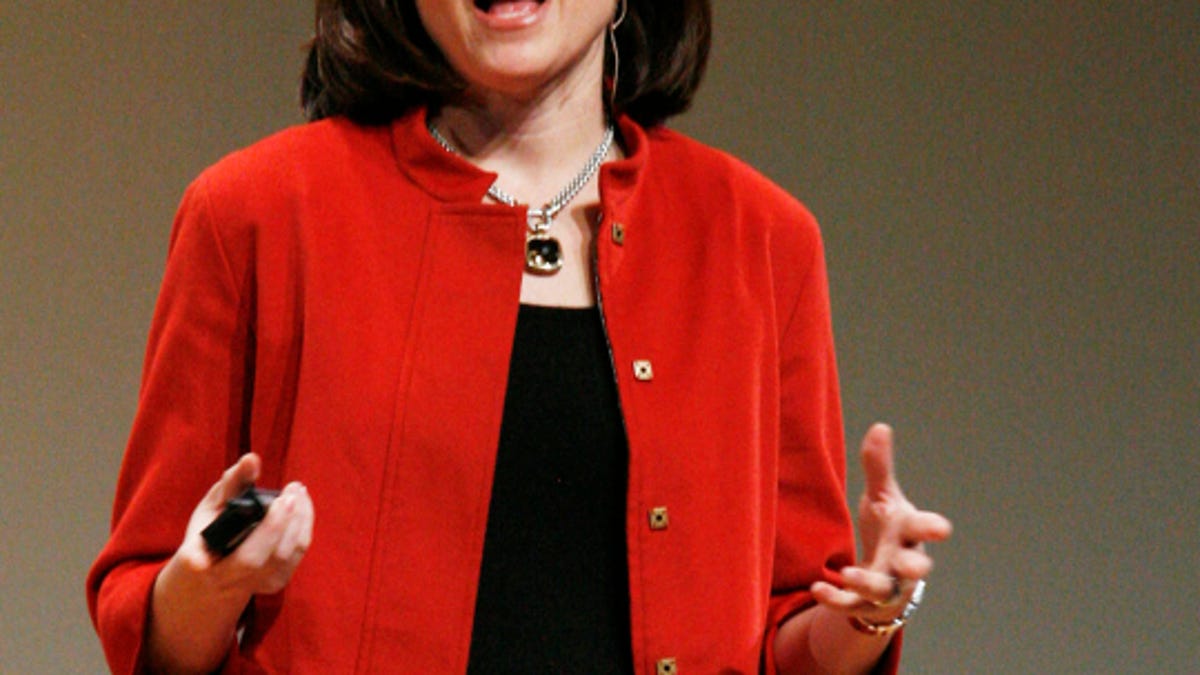Facebook touts its economic muscle--but only counts the good stuff
The company claims it created 15.3 billion euros in European economic activity in 2011, but only included its positive contributions.

Facebook might be just another social network to us, but for world economies, it's actually helping drive growth.
Or so says one of its top officials, COO Sheryl Sandberg--though some of the figures she cited may be a little too carefully cherry-picked.
Speaking today at the Digital - Life - Design (DLD) Conference in Munich today, Sandberg said Facebook's business goes beyond "posts and pictures" to include "jobs and empowering people." All Things Digital, which attended the event, was first to report on Sandberg's comments.
Sandberg cited a host of statistics from a report released today by research firm Deloitte outlining the ways in which Facebook has allegedly helped the European economy. Facebook itself commissioned that report, by the way.
According to that Deloitte report, the social network added 15.3 billion euros (about $19.9 billion) in European economy last year. And due to its presence online, it has "helped to support 232,000 jobs across Europe," through social-media marketing opportunities, app developers, and other occupations centered on taking advantage of Facebook's reach.
Facebook crowed over the data in a blog post:
In Europe, thousands of people are employed just to make Facebook apps, and technology manufacturers are selling smartphones and tablets to Facebook users who want to connect wherever they go. We always knew that this was worth a lot of money. However, there was no way to measure that value, until now.
The Deloitte study, however, deliberately doesn't tell the full story. On page 3 of its executive summary, the firm notes that its research data explicitly doesn't include the results of any "displacement/cannibalization of existing economic activity." So if Facebook hurt existing or rival businesses--as it almost certainly has--those consequences simply don't factor into Deloitte's analysis of the Facebook "contribution" to the European economy.
In other words, in a world without Facebook, its users would be on other sites or busy doing other things that presumably helped other companies generate revenue in some form or fashion. The disappearance of that alternate economic activity has obvious negative economic consequences, though you won't find them in Deloitte's report.
Which means that Deloitte's figures really offer a narrowly circumscribed view of Facebook's economic impact. Without looking at the full picture--one that Deloitte apparently deliberately neglected, presumably at Facebook's behest--it's impossible to determine how much economic growth Facebook has boosted--or whether it's actually boosted growth at all.
Sandberg also said that Facebook is the now the second-highest traffic driver behind Google, adding that those who are sent to other sites from the social network are more likely to be engaged in the content than users sent from other sources. That might make some sense when one considers that most of the users heading to sites from Facebook are referred to them by friends. As Sandberg reportedly said at the conference, there's significant value in "the wisdom of friends."
Although Sandberg focused her comments on Europe, late last year, her company also made an effort to help the U.S. economy is a slightly different way. The initiative, called the "Social Jobs Partnership," was born from an agreement between Facebook and the U.S. Department of Labor, and includes coming up with ideas to leverage social networks to help Americans find jobs. Free job postings are among the many ideas being tossed around as part of the initiative.
Update 9:02 a.m. PT to include more details on the Deloitte study.

